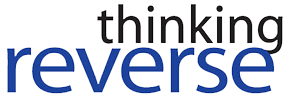
When we chat with borrowers during their consultations about reverse mortgages, we notice that there are a lot of misconceptions to clear up. That is probably because there is a lot of misinformation floating around out there about these types of loans.
Sometimes, misconceptions about reverse mortgages are what hold borrowers back from cashing in on their benefits. Let’s go over a few common myths about reverse mortgages.
Find Out If A Reverse Mortgage Is Right For You
Receive a Personalized Analysis Specifically For YouReverse Mortgage Myths
- The government owns your home. Many people believe that when they sign on a reverse mortgage, they are signing their home over to the government, and are no longer the legal owners. But this is not true. When you sign on a reverse mortgage, you are taking out a loan against the equity in your home. It is just like a traditional loan. You are still the home’s owner, and the title remains in your name. You also still have control over your home as well. In fact, if you want, you can refinance or sell your home. Just keep in mind that if you sell the home, that will be a maturity event. When a maturity event takes place, the loan becomes due.
- Your family will not receive an inheritance. Another common misconception among borrowers is that if they take out a reverse mortgage, their heirs will receive nothing. But that is not necessarily true. First of all, if your heirs are able to pay off the reverse mortgage through other means, they can actually keep the house. So, the home can be the inheritance in some scenarios. Secondly, if they do sell the home to pay off the reverse mortgage, any funds left over will go to the heirs you designated in your will.
- Your family will inherit your debt. Related to the concern above, borrowers sometimes worry that if they take out a reverse mortgage, their families will be saddled with debt they can never pay off. The loan will come due after the death of the last borrower, but your heirs will not be responsible. Reverse mortgages are classified as non-recourse loans. So, if the home is sold to pay off the loan and the loan balance exceeds the home’s appraised value, the FHA will pay the difference, not your heirs.
- Your younger spouse will have to pay off the reverse mortgage immediately if you die. If you have a spouse who is younger than 62, you can get a reverse mortgage. But what happens if you die before your spouse? You might be under the impression that your spouse will have to immediately pay off the loan. That used to be true. But it is not true any longer. Following a 2014 policy change, HUD now follows this policy:
“In the event the last surviving mortgagor predeceases a Non-Borrowing Spouse, the due and payable status will be deferred for as long as a Non-Borrowing Spouse continues to meet all the qualifying attributes stated in the above section.”
So, no, your spouse will not need to immediately pay off the loan if you pass. The same goes for you if you are the one who is younger than 62 and your spouse passes before you. - You can only get a reverse mortgage if you own 100% equity in your home. Homeowners sometimes do not apply for a reverse mortgage because they believe that unless they own their homes outright, they cannot qualify. But you do not need 100% equity in your home to apply successfully for a reverse mortgage.
- If you are applying for a reverse mortgage, you must be desperate. Finally, one more misconception about reverse mortgages is that only desperate or broke people apply for them as a last resort after not qualifying for other types of loans. But actually, those who are in dire straits may not qualify for a reverse mortgage at all. Indeed, many homeowners who take out reverse mortgages are actually well-off. A reverse mortgage gives you a way to get more out of the investment you have made in your home. And because there are no restrictions on how you use the cash, it is an incredibly flexible loan option. Just a few of the reasons to consider applying for a reverse mortgage regardless of your financial status include supplementing income, increasing liquid assets, extending the life of your assets, minimizing income taxes, and boosting financial flexibility in retirement. In fact, a reverse mortgage can be a great addition to an already solid financial plan for retirement.
Get Answers to Your Questions About Reverse Mortgages
Have questions about reverse mortgages? We are here to help dispel misconceptions and shed light on the reverse mortgage process. To schedule your reverse mortgage consultation in Dallas, please give Michael Harrell Group a call today at (214) 269-3593.
Find Out If A Reverse Mortgage Is Right For You
Receive a Personalized Analysis Specifically For You
